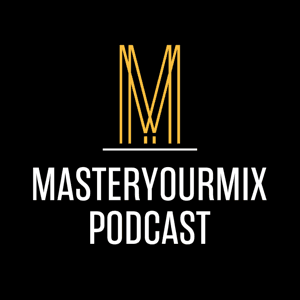Can one sync placement change your entire music career?
On this episode of Bobby Owsinski's Inner Circle, I’m joined by Chris SD - producer, engineer, songwriter, and founder of Sync Songwriter. Chris has helped artists get $30,000 placements, land Billboard features, and book world tours through sync licensing. In this deep-dive conversation, he breaks down how sync really works today, why connections matter more than ever, and how indie artists can win big in film and TV without major label backing.
If you’ve ever dreamed of getting your music into movies, shows, or commercials, this episode is your ultimate roadmap.
You can find out more about Chris SD's Art Of The Song Pitch program here - https://www.syncsongwriterprograms.com/a/2148209546/o6RJ27FZ
KEY TAKEAWAYS:
• What a music supervisor actually does
• Why sync licensing is the last place for massive music exposure
• Why indie music is often preferred over major label tracks
• Why you need to write authentically, not “for sync”
• How AI is affecting sync, and what it can’t do
• What supervisors look for in an ideal track
• Why relationships are more valuable than random pitches
• The difference between stems, masters, and what’s really required
• How The Art of the Song Pitch program works
• Why now is the time to act, not just learn
BEST MOMENTS:
00:01:32. “A music supervisor is someone who is hired by movie studios, TV studios, ad agencies to go and find music.”
00:02:57. “Indie music, that's exactly where indie music comes in.”
00:04:37. “Every single story I've heard, even the ones that look like people just went viral, there was someone involved who was connected in the industry.”
00:06:18. “Music supervisors are the new A&R.”
00:10:07. “Nora Ryder won five Oscars... the genres were jazz and Russian hip hop.”
00:14:06. “You can't legally place an AI song in TV and film right now.”
00:20:32. “You're certified. You're ready for me to introduce you to music supervisors.”
00:31:08. “It wasn't for the money. The money is amazing... but the reason I got into it was the exposure.”
Ad link: Explore The Mixing Engineer’s Handbook (6th Edition), the go-to guide for modern mixing: https://sholink.to/themixingengineershandbook
Thank you for tuning in to Bobby Owsinski’s Inner Circle, the podcast that takes you deep inside the music industry. Each week, Bobby shares insights, news, analysis, and conversations with the movers and shakers shaping today’s music world.
📌 Explore Bobby’s best-selling books:
https://sholink.to/bobbyowsinskibooks
🎧 Free “Magic Frequencies” mini-course, learn the EQ secrets behind pro mixes: https://sholink.to/bobbyowsinskieqcourse
🎙️Nail that pro vocal sound: clear, upfront, and mix-ready.
Learn how in Bobby’s Vocal Mixing Mini-Course: https://sholink.to/vocalmixingcourse
🎧 Discover more mixing and production courses:
https://sholink.to/bobbyowsinski
📲 Follow Bobby for more tips, insights, and updates:
• Facebook: https://www.facebook.com/BobbyOwsinskiBiz/
• LinkedIn: https://www.linkedin.com/in/bobbyo/
• Instagram: https://www.instagram.com/bobbyowsinski/
• Bluesky: https://bsky.app/profile/bobbyowsinski.bsky.social
🎙️ New episodes release every Tuesday at 9AM Pacific on YouTube and your favorite podcast app.
Music. Business. Creativity. Straight from the Inner Circle.
Produced by APodcastGeek
https://apodcastgeek.com/




































